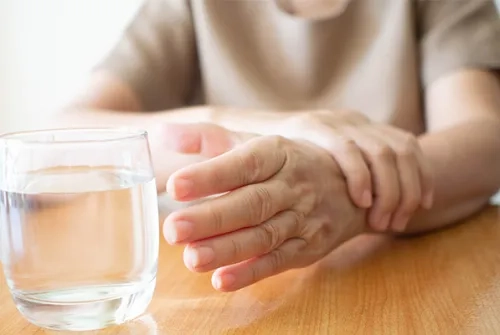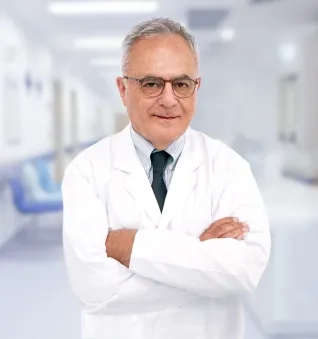Alo Yeditepe
Alo Yeditepe
What Precautions Should Be Taken for Neuromuscular Diseases?
Pointing out that some additional measures should be taken in the individual treatment of our neuromuscular patients these days when we are experiencing the Covid-19 pandemic, Prof. Dr. Haluk Topaloglu explained the recommendations of the World Society of Neuromuscular Diseases for this patient group.
Even if the treatment of neuromuscular diseases is the same diagnosis, it can vary from one patient to another. Because different features such as the age of onset, level of progression, and findings of the disease can be a factor in this difference. Yeditepe University Koşuyolu Hospital Pediatric Health and Diseases, Pediatric Neurology Specialist Prof. Dr. Haluk Aydın Topaloğlu pointed out that patients must be evaluated individually.
These Patients are at Greater Risk
Stating that research on whether people with neuromuscular disease increase the risk of getting sick with Covid-19, Prof. Dr. Haluk Topaloglu, “Countries' Neurological Science Associations have started to publish announcements on this subject. (e.g., British Neurological Society). According to these reports, it is shown that Covid-19 infection can be moderate or severe in neuromuscular diseases. Dr. Topaloğlu listed the groups with high-risk factors as follows, but not the same in each patient:
“If the respiratory function tests are impaired as a result of the weakness of the chest and diaphragm muscles (FVC<60%), the risk increases, especially in cases of kyphoscoliosis. In addition, it is possible to say that those who receive respiratory support and have a tracheostomy, patients who cannot clear the airway as a result of insufficient cough and oro-pharyngeal weakness, those who have heart muscle involvement or use heart drugs, those with diabetes and obesity, those who use steroids or drugs that adversely affect the immune system (immunosuppressive) are at high risk."
To Protect Yourself From Covid-19…
Reminding that Covid-19 infection is transmitted through droplets as a result of coughing, sneezing, and talking, Prof. Dr. Haluk Topaloglu said that people with the neuromuscular disease should seriously apply the following measures.
• It is the first condition that they are at least 2 meters away from other people. If the neuromuscular disease is severe, then isolation (quarantine) is required with all of it.
• Working patients should be switched to working from home.
• It should not enter crowded environments and try not to use public transportation as much as possible. Similarly, visits to them should be limited.
• Hands should be washed frequently with soap and water for at least 20 seconds or hand hygiene should be provided with alcohol-based hand disinfectant.
• Especially the surfaces of common areas should be cleaned frequently.
• Family members should be at home as much as possible. Outside health care providers (e.g., for the care of the respirator) should approach with appropriate masks and clothing.
• It should not be preferred for the physiotherapist to come home; the sessions should be carried out via phone calls or video viewing.
• Considering that the caregiver will also get sick, different scenarios and plans should be developed for situations where the patient may be alone. It should be remembered that the main goal here is to avoid going to the hospital.
Neuromuscular Patients Should Continue The Drugs They Use
Underlining that drug treatment is extremely important in terms of neuromuscular diseases, Prof. Dr. Haluk Topaloglu pointed out that the drugs used by the patients and the spare materials related to the respirator, if any, should be available for at least one month or even more. Stating that it would be beneficial for patients to rehearse at home for drugs (such as adrenaline) that they need to use in emergencies, Prof. Dr. Haluk Topaloğlu continued his words as follows: “DMD patients, especially those taking steroids, should continue to do so. It should be remembered that these drugs should never be stopped suddenly. If the patient does not feel well acutely, he should consult his physician about increasing the dose. inflammatory muscle diseases (polymyositis), myasthenia, and inflammatory nerve diseases (CIDP) should be under the control of their physicians. Those who are on a ventilator should preferably not be in a hospital environment, as they carry a high risk.
If there are Covid-19 Symptoms…
Pointing out that the hospitalization of patients with symptoms of Covid-19 infection should be delayed as much as possible, Yeditepe University Hospital’s Pediatric Health and Diseases, Pediatric Neurology Specialist Prof. Dr. Haluk Aydın Topaloğlu: “Our patients should also take into account the overload of emergency services. The selection of hospitalized patients or the subject of ‘triage’ may work negatively for neuromuscular patients. It can be a difficult decision moment for emergency room and infection physicians. In addition, many hospital administrations will not take respirators brought from outside to the hospital in accordance with hygiene principles.”
About
Faculty and Year of Graduation:
Hacettepe University Faculty of Medicine, 1978
Alo Yeditepe





